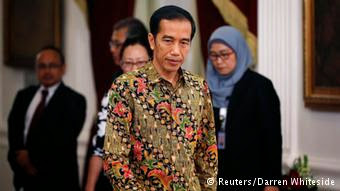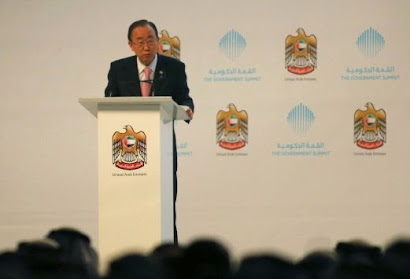The Jakarta Post, Jakarta
It was not yet noon, but the Friday morning heat was such that a group of men had tied shirts around their heads in addition to their caps to protect them from sunburn.
Covered in white dust, the men loaded sacks of cement from a cargo truck into a traditional schooner.
This activity -- a daily routine at the port -- attracted Yannick and Mona, a French couple, strolling along the dock which has a capacity to accommodate 70 schooners.
 Photographing and discussing the work, they were also impressed with the long line of vessels with uniquely pointed prows and colorful decorations mooring at Sunda Kelapa Port in North Jakarta.
Photographing and discussing the work, they were also impressed with the long line of vessels with uniquely pointed prows and colorful decorations mooring at Sunda Kelapa Port in North Jakarta.
Sunda Kelapa is the city's most historical port, renowned for phinisi schooners, the traditional vessels of the Bugis people of Sulawesi, still used to deliver goods around the archipelago.
An Australian couple, Pat and Jenny, who had been in the country for one week, were also fascinated by the boats.
"We have wooden boats back in Australia, but they're not like these ones," Pat said.
The phinisi ships at Sunda Kelapa are wooden vessels around 40 meters long and 15 meters wide, with two main masts with seven sails each. The boats have diesel engines they can use alternately with the sails. They can carry up to 950 tons of cargo, which varies from cement and timber, to electronic devices and appliances.
The schooners transport goods across the archipelago, but mainly to Batam island or Pontianak in Kalimantan.
The journey takes up to three full days. Some may return laden with timber from Kalimantan but most return empty to Sunda Kelapa to reload.
John (not his real name), a British man, who for 13 years has been coming to Jakarta for business, said he finds the harbor unique.
"This place offers something very traditional and very Indonesian. The boats are remarkable. You can't find them anywhere else in the world," he said.
Sunda Kelapa's history dates back to the 12th century, when it was the most important harbor of the Pajajaran Kingdom (the area now known as West Java), with trading ships from China, southern India, Japan and the Middle East.
In the 15th century it became the source of a conflict. The port was conquered by Fatahillah on June 22, 1527, marking the birth of Jakarta.
Tanjung Priok, a far more modern harbor not far from Sunda Kelapa, was constructed by the Dutch in 1873 and became one of the most prominent seaports in the country, but Sunda Kelapa maintains activity.
For something different, tourists can take a boat ride across the Dutch-made canal.
Despite being popular among foreign visitors, Sunda Kelapa is not a favorite tourist destination for locals, who prefer modern entertainment centers and shopping malls.
While the area does not see many local tourists, Basri, a 50-year-old Buginese man who takes people across the harbor in his small boat every day, said over the Idul Fitri holidays more visitors had come.
"During the holidays I made more money," he said.
Basri, usually charges locals between Rp 6,000 and Rp 10,000 (US$1), and foreigners Rp 25,000 to Rp 30,000 a trip.
As part of Jakarta's old city, the harbor attracts both locals and foreigners with its schooners, but lacks tourism infrastructure.
Attended parking is available for cars but not for motorcycles.
 Tourists are permitted onto schooners to get a look at the old sturdy wooden decks or a feel for the seafaring atmosphere, but first must climb a one-meter high concrete dock curb before reaching the ship.
Tourists are permitted onto schooners to get a look at the old sturdy wooden decks or a feel for the seafaring atmosphere, but first must climb a one-meter high concrete dock curb before reaching the ship.
Sunda Kelapa may serve as a loading and storage facility, but it is not tourist friendly.
Except for warehouses and a stock piling area there's not much more for tourists to see on the dock, which is poorly maintained and partly flooded with seawater.
There are no proper restaurants at Sunda Kelapa either, only street vendors selling cigarettes, peanuts and drinks.
Toilets, another vital facility, are nowhere to be found.
The poor condition of the harbor is a concern for some tourists, like John, even though he enjoys Sunda Kelapa's uniqueness.
"It's just too bad. It has so much potential. There is so much that could be done to the place."













